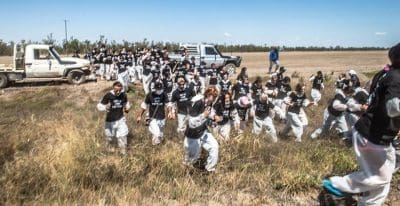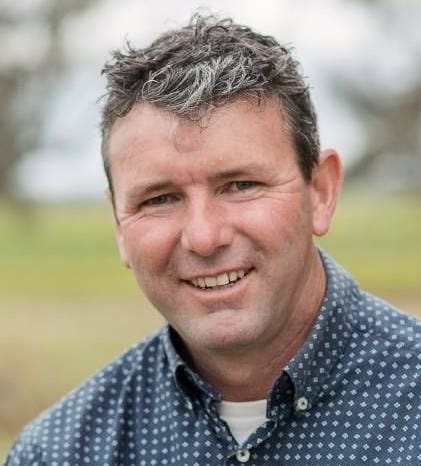VICTORIAN law makers have side-stepped a call to ban animal activists from illegally filming on farms, feedlots and abattoirs and then sharing the images publicly.
A state parliamentary inquiry instead suggested that Victorian farmers or employers be responsible for preventing illegal spy-cam footage of staff.
The inquiry committee’s final report was tabled in mid-May and reinforces the Victorian law that allows illicit animal activist footage to be shown ‘in the public interest’.

More than 100 anti-meat activists invaded a Millmerran feedlot in 2019.
The Victorian Farmers Federation had argued that vision misrepresenting ordinary, lawful practices should not be considered in the public interest and not allowed to be distributed.
However, the Inquiry into Workplace Surveillance overruled the call, saying it was out of the inquiry’s scope.
The committee acknowledged that: “While such surveillance is unlawful under the Surveillance Devices Act, it is exempted under a public interest clause.”
The VFF asked for the public interest protection be removed, as happens in NSW. The ag-lobby group sought to make surveillance undertaken by trespass unlawful.
In reply, the committee said it recognised that unauthorised surveillance causes stress and anxiety for farmers, but ruled: “This type of surveillance falls outside of the inquiry’s scope, which focuses on the surveillance of employees in the course of their employment, rather than the recording of business practices.”
Instead, the report recommends employers “be required to take all reasonable steps to prevent surveillance of an employee while at work by a party other than the employer without the employee’s consent.”

Brett Hosking: “Not just inconsistent, it’s completely unjust.”
VFF president Brett Hosking said: ““What we’re seeing here is a legal loophole where activists can break into farms, secretly film people without consent, and still have that footage aired in the name of ‘public interest’. Yet the farmer could be the one held legally responsible for not protecting their staff from this illegal surveillance.
“That’s not just inconsistent, it’s completely unjust. Farmers are being asked to police third-party trespassers, while the law turns a blind eye to how the footage was obtained.”
Last week the Melbourne-based Farm Transparency Project this week completed a campaign targeting 30 abattoirs nation-wide, and calling for their closure. Trespassing activists, mostly entering premises at night, shot spy-cam footage of lairage and kill floors using remote cameras hidden in overhead gantries. Most of the filming comes from smaller-scale, often family-owned sheds.
The vision is not continuous but highly edited and set to brooding music soundtracks and anti-meat commentary.
Abattoirs targeted in the campaign included those processing beef, sheep, goats and ducks. The Facebook posts initially carried graphic-content warnings, but more recent posts have not.
Activist groups also fly drones over feedlots to capture images of livestock and mortalities.
The VFF submission, lodged by the group’s former president Emma Germano, argued that activist footage “that is subsequently used to misrepresent the conduct of a business, or misrepresent the ordinary lawful practices of an industry, cannot be in the public interest”.
The VFF called for stiffer penalties for the unauthorised recording and the dissemination of footage. It also argued against mandatory on-farm video monitoring to monitor compliance with animal welfare laws.
“There are many industries that do not have mandatory CCTV footage in place, despite there being particular vulnerabilities, that is live streamed to the public for multitudes of reasons, including protecting the privacy of people who work in those establishments.
“The introduction of mandatory surveillance on farms would constitute a severe invasion of privacy. Farms are not just places of work but also homes for many farmers and their families. Continuous surveillance infringes upon their right to privacy, creating an environment of constant observation and scrutiny.”
The surveillance inquiry was chaired by Labor’s Alison Marchant. Of the nine committee members, three represented rural electorates, three outer-urban and three urban electorates.
The VFF submission can be read here, and the Inquiry committee final report can be read here.

That’s not just inconsistent, it’s completely unjust. Extremists like these use whatever tactics they can to get their massages (often distorted facts) to the public.